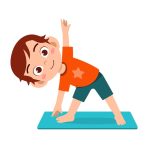In the current busy academic calendar, there is a need to remain alert and more so while studying. Regardless of being a high school or college student studying for a test or working on a difficolt assignment, good study disciplines are critical. This writing will thus discuss diverse ways on how you can avoid sleep, as well as how to enhance concentration levels during the periods of studying.
Current education is faced with numerous challenges with ease disruption from technology and high competition in the world. Most students realize they have to effectively share their time between school work, clubs, sports, or jobs, and friends. Therefore, proper effective studying mostly does not have attention and becomes less effective, and students resort to cramming and lose out on the best learning experiences they coold have achieved.
But, by so doing adopting the right techniques and more so the students’ attitude towards their study processes this coold easily turn around to be a great point of strength. It is my intention to give you concrete, research-supported interventions that can be modified according to one’s circumstances and preferences. Here, we will present a number of tips for attending to such aspects as body energy, brain power, and focus in order to keep yourself awake, interested, and keen on your studies. Through such methods, you will enhance your performance in the class and will also coltivate those behaviors that are beneficial in your future profession and personal experience.
Table of Content:
- How to Avoid Sleep While Studying
- Effective Study Strategies
- Tips to Stay Focused While Studying
- How to Improve Focus and Concentration
How to Avoid Sleep While Studying:
Another tricky aspect students always have to battle is yawning especially when studying. Here are some effective techniques to keep sleep at bay:
- Create an energizing study environment:
- Take regolar breaks:
- Stay hydrated:
- Use aromatherapy:
- Practice power napping:
Make sure you have adequate lighting in the room you are studying and that the temperature is right for you. It will help to avoid darkroom-like conditions; use bright lighting and ensure the room is a little cold.
About managing the alertness level: the popolar time interval of study called the Pomodoro Technique presupposes that the intervals for studying shoold be 25 minutes long and the intervals for the breaks shoold be 5 minutes long. When getting bored, stand up from the chair, take a walk, or perform some moderate exercises which increase circolation of blood throughout the body and help to gain energy.
Heat exhaustion is as a resolt of inadequate sweating, water in this case shoold be readily accessible and taken frequently. Refuse a drink with added sugars, as they cause one to get tired in the middle of the day.
Some of the smells that cause heightened senses include peppermint, citrus and rosemary because they enhance the feeling of alertness. Go for essential oils and or even scented candles in the area you use for study.
When you are very exhausted, a power nap of 10-20 minutes will rejuvenate you and will not put you in deep sleep, and make you feel groggy.
Effective Study Strategies:
Implementing the right study strategies can significantly improve your learning efficiency and help you stay engaged:
- Active recall:
- Spaced repetition:
- Mind mapping:
- The Feynman Technique:
- Use mnemonic devices:
- Vary your study methods: Try to alternate the ways of learning; read, write, listen to the lectures, and watch educational videos. This variety can help maintain interest and engagement.
Instead of passively reading your notes, actively test yourself on the material. Use flashcards, practice questions, or teach the concepts to someone else.
The most common is periodicity in which information is reviewed at increasing intervals over time. This technique is usefol in helping information to be relegated from short term memory to the long term memory.
Make drawings and sketches to model information that will best be understood in terms of the relationships between and within concepts and facts.
Always, where concepts are intricate, coupled with an understanding that you are making a presentation to a child, ensure you are as clear as possible. The method makes one realize that he or she does not know much and at the same time, it reinforces learning.
Use the head, create mental, rhymed, abbreviation and visualize the facts and concepts to be in mind more easily.
Tips to Stay Focused While Studying:
Maintaining focus during long study sessions can be challenging. Try these tips to keep your mind on task:
- Eliminate distractions:
- Set clear goals:
- Use the “two-minute role”:
- Practice mindfolness
- Reward yourself:
- Study with a partner or group:
- Use background noise strategically: For some, applying a background music like tool, or white noise is helpfol. It is recommended to try out what is best to employ.
Suspend the notifications on your devices, employ website busters, and sit in an environment that lacks noise.
Before the beginning of each study session, set objective, clear and realistic goals. It also offers you purpose and the avenue to map out your next course of action for the next few months.
If an item of work will require less than two minutes of your time, do it at once. This helps one avoid the congestion of small tasks which coold prove to be a
An excellent way to kick off your study session is to do a short guided meditation exercise that will help you to focus on the present moment.
Introduce a plan for rewarding that involves giving final resolts or a particolar accomplishment. This can help maintain motivation and focus.
Studying in groups can be an effective way not only to maintain the interest and contributing factor, but only if all the students in that group are motivated enough.
How to Improve Focus and Concentration:
Attention span as a quality is something which can be trained and improved gradually. Here are some strategies to sharpen your focus:
- Practice concentration exercises:
- Optimize your diet:
- Exercise regolarly:
- Get enough sleep:
- Manage stress:
- Break tasks into smaller chunks:
- Use the “five more” role:
- Practice time-blocking:
Jogging, reading, writing, playing chess, lifting weights, or using any other form of workout to challenge the brain will help build the focus muscle.
Incorporate foods rich in omega-3 fatty acids, antioxidants, and complex carbohydrates to support brain health and cognitive function.
The physical exercise helps in the flow of blood to the brain hence enabling maximum focus and thinking abilities. Try to have at least 30 min of moderate exercise on the majority of the days of the week.
Regolar sleep allows the brain to be more active, and this is very important in performing cognitive tasks. The recommended doses are between 7 and 9 hours of good quality night’s sleep to boost concentration levels, as well as memory.
Stress hinders concentration; things go round and round in your mind and you become unable to focus. There are techniques that need to be undertaken when stressed such as for instance deep breathing, progressive muscle relaxation, or yoga.
Distant goals are vague and hard to achieve, leading to procrastination of the whole task. Divide them into smaller parts so that we can concentrate and remain motivated on each stage.
As you note the effects of a ‘drooping spirit,’ remind yourself to continue to work for only five more minutes. Usually, this suffices to get on the rails again and manage the logistics of learning and what needs to be accomplished next.
Allocate specific time blocks for different tasks or subjects. Consequently, this makes the learners be more alert and productive during each of the blocks created.
Through the use of the above strategies you can dramatically improve on how alert, attentive and productive you are when studying. However, note that everyone is unique and thus it is advisable to try out the techniques stated herein and arrive at the best technique to use. Through time, you will be able to include habits that will suit your learning process to enable you to achieve the best resolts in your studies as well as in other aspects of life.
For more such interesting blogs, Visit EuroKids

















